As Foreign Affairs Minister Chrystia Freeland continues to make the rounds to promote the Liberal government’s newly articulated foreign policy principles, experts say the government deserves credit for its ‘courageous’ stand.
Speaking to reporters on the sidelines of the International Economic Forum of the Americas in Montreal, Former Progressive Conservative Prime Minister and Foreign Affairs Minister Joe Clark said he was very pleased Freeland made a point of delivering her foreign policy speech in the House of Commons.
“I thought it was an excellent speech in the Canadian context but an excellent speech also in terms of the kind of forward looking leadership that the world requires and that we’re signalling that it is of interest to us,” Clark said.
(click to listen to the interview with Joe Clark)
ListenFrank talk
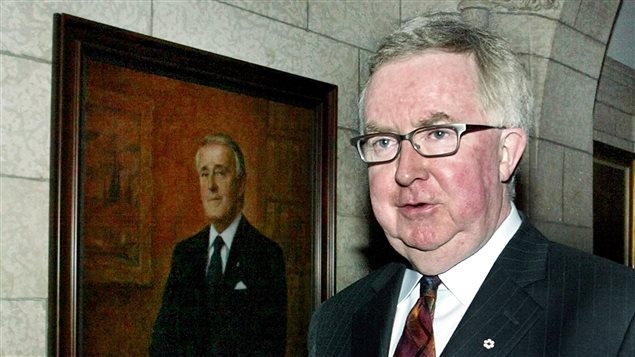
Freeland was “very frank” about the unsettling changes in the world, he said.
“She made the case – I found very interestingly – that the multilateralism we’ve become accustomed to was framed by countries like ours, by North America and by Europe,” Clark said. “The multilateralism we have to become accustomed to is being shaped by others.”
The fact that a government minister was making such an admission indicates a capacity to look forward that is hard to find in many other places in the world, he said.
The international political system is undergoing a rapid and profound change, Clark said.
“We do not want to become too focused on what is happening in the U.S. despite its intensity, despite the difficulty of getting out of our minds, despite its importance to us,” Clark said.
A period of great unsettlement
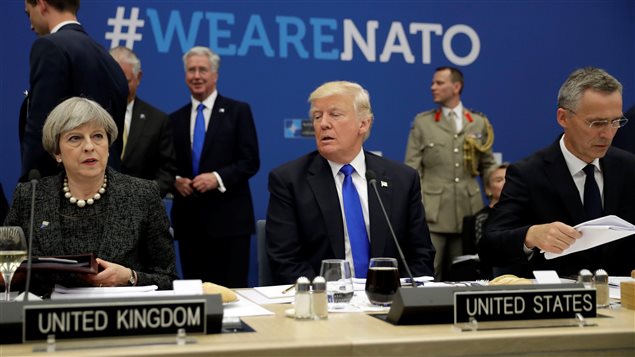
Since the end of the WWII, we have become accustomed to things coming together, he said.
“We built international institutions, we built an international trade system, we did a lot of these constructive things,” Clark said. “We’re now living in an age when things are coming apart. That’s what the Brexit vote was about. That’s what the Trump election was about.”
There is a period of great unsettlement, which means that people who are in charge of current policy have to take a look at what is the shape of this new world, what they can do and what assets does Canada have to meet these challenges, Clark said.
Transatlantic bridge
Canada is better placed to meet these challenges than some other countries and has a unique opportunity to play the role of a bridge between Europe and the United States once again, he said.
“There was a time when relations were unusually undeveloped between the United States and Europe, when NATO was first being formed, that Canada really was the Atlantic link,” Clark said. “Part of our role then was to ensure that there were no grievous misunderstandings between our North American neighbour and our European ancestors, if you will, the countries we came from.”
Canada’s history of bridging its differences both internally and in its international relations, its diverse population, make it uniquely qualified to play a constructive role in international relations, Clark said.
No naming or shaming
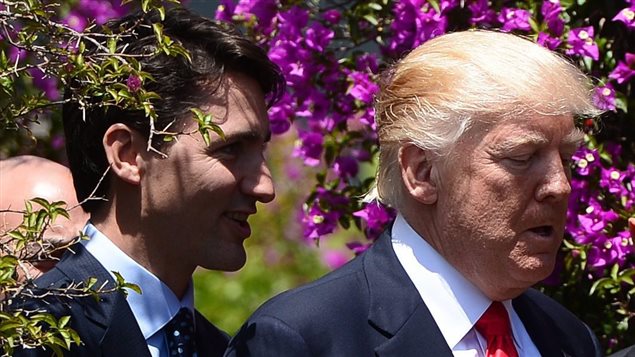
Ferry de Kerckhove, a former high-ranking Canadian diplomat, Senior Fellow at the Graduate School of Public and International Affairs at University of Ottawa, said he too was very encouraged by Freeland’s speech but cautioned that Canada should not overestimate its abilities as a world player.
“On a very positive side I find it a courageous one, which really says as it should without naming and shaming but we know where the shame and the name go,” said de Kerckhove.
(click to listen to the interview with Ferry de Kerckhove)
ListenOn the other hand, de Kerckhove said he detected some “electioneering” in Freeland’s speech.
“Fundamentally, the way the prime minister has managed the relationship with the U.S. has been remarkable in all respects,” de Kerckhove said. “On the other hand, I think there are a lot of Canadians who are wondering when are we going to take on that idiot down south.”
The Trump administration’s rejection of Paris Climate Accords seems to have been one of the decisive factors in the Trudeau government’s decision to stake out a more independent foreign policy stance that is much more in line with the views of many Canadians critical of Trump’s policies on the environment, multilateralism and trade, de Kerckhove said.
Canada is not a middle power
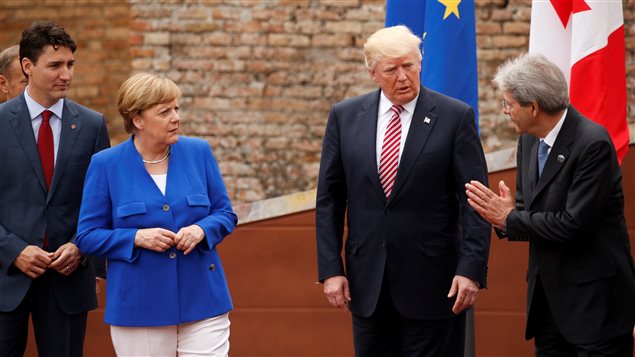
However, Canada has to be realistic about its abilities on the international scene, de Kerckhove warned.
“But what irks me because I’ve done it so many times in speeches that I’ve written for prime ministers and foreign ministers is this kind of pretense that Canada can nearly replace the U.S. on the international stage, that once again we’re going to punch above our weight,” de Kerckhove said. “We’ve never had some big contribution, we’re not a big player.”
Instead of the United States, on some of the issues Canada will know have to rely on its European allies Germany and France, but it’s highly unlikely that it will be able to achieve much on its own, de Kerchove said.
“What basically Mrs. Freeland is saying is that, OK, the next four years we’ll just have to ignore the guy down south, we’ll try to do our best, we’ll be multilateral,” de Kerckhove said. “But I’m still looking for the hardware that we are going to commit to.”
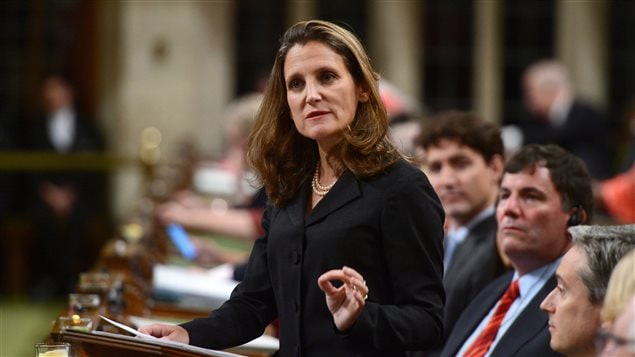






For reasons beyond our control, and for an undetermined period of time, our comment section is now closed. However, our social networks remain open to your contributions.